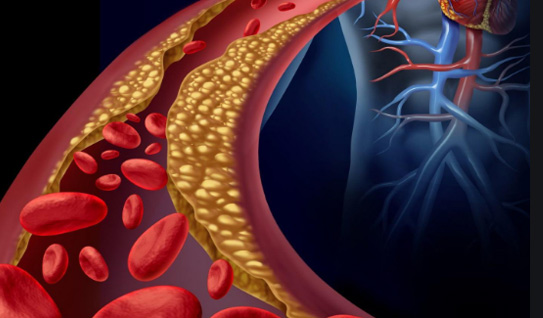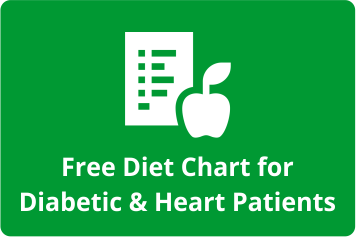Fight Cholesterol And Increased Diabetes, Felix is in Your Corner Against Any Heart Problem
Felix Heart Center
Get your FREE Consultation

Fights Cholesterol And Increased Diabetes
High cholesterol levels may be a sign that you are at higher risk of heart disease and stroke
However, it is the balance of cholesterol levels that is a better indicator of heart health. Too low cholesterol can be more dangerous than too high cholesterol.
Whilst cholesterol levels may rise for a number of reasons, high cholesterol levels over a period of years is often associated with a greater risk of health problems.
Diabetes and high cholesterol often occur together.
If you have both diabetes and high cholesterol, you’re not alone. The American Heart Association (AHA) states that diabetes often lowers HDL (good) cholesterol levels and raises triglycerides and LDL (bad) cholesterol levels. Both of these increase the risk for heart disease and stroke.
Multiple tests have shown that Cholesterol absorption efficiency is lower and cholesterol synthesis is higher in obese subjects with diabetes than in those without diabetes, suggesting that diabetes modulates cholesterol metabolism more than obesity alone.
Symptoms
High cholesterol
High cholesterol does not usually present any symptoms in itself, however,people that have high or unbalanced cholesterol levels over a number of years are more likely to develop problems such as heart disease, stroke and peripheral arterial disease (PAD).

What causes high cholesterol?
High or unhealthy cholesterol levels may be brought on by:
- High-calorie diet
- High-carbohydrate diets
- Low physical activity
- Obesity
- Smoking
- High alcohol intake
High cholesterol levels may also result from the following:
- Hypothyroidism – an underactive thyroid
- Kidney disease
- Liver disease
- Familial hypercholesterolaemia – a genetic condition that affects around 1 in 500 people
Diabetes
- Increased thirst
- Frequent urination
- Extreme hunger
- Unexplained weight loss
- Presence of ketones in the urine (ketones are a byproduct of the breakdown of muscle and fat that happens when there’s not enough available insulin)
- Fatigue
- Irritability
- Blurred vision
- Slow-healing sores
- Frequent infections, such as gums or skin infections and vaginal
infections
Get your FREE Consultation
Diagnosis

High cholesterol
A cholesterol test, which measures total cholesterol, HDL cholesterol, non-HDL cholesterol and triglyceride levels, should be performed at least once every year for people with diabetes.
It is more difficult to measure LDL cholesterol, and so non-HDL cholesterol is used instead of getting a direct LDL measurement.
The following tests are used for the diagnosis of diabetes:
- A fasting plasma glucose test measures your blood glucose after you have gone at least 8 hours without eating. This test is used to detect diabetes or prediabetes.
- An oral glucose tolerance test measures your blood sugar after you have gone at least eight hours without eating and two hours after you drink a glucose-containing beverage. This test can be used to diagnose diabetes or prediabetes.
- In a random plasma glucose test, your doctor checks your blood sugar without regard to when you ate your last meal. This test, along with an assessment of symptoms, is used to diagnose diabetes, but
not prediabetes. - A hemoglobin A1c (HbA1c) test can be done without fasting, and can be used to diagnose or confirm either prediabetes or diabetes.
Treatment
High cholesterol
Lifestyle changes such as exercising and eating a healthy diet are the first line of defense against high cholesterol. But, if you’ve made these important lifestyle changes and your cholesterol levels remain high, your doctor might recommend medication.
The choice of medication or combination of medications depends on various factors, including your personal risk factors, your age, your health and possible drug side effects. Common choices include:
- Statins
- Cholesterol absorption inhibitors
- Bempedoic acid
- Bile-acid-binding resins
- PCSK9 inhibitors
- Medications for high triglycerides
If you also have high triglycerides, your doctor might prescribe:
- Fibrates
- Using fibrates with a statin
- Niacin
- Omega-3 fatty acid supplements

Diabetes
Type 1 diabetes
Insulin is the main treatment for type 1 diabetes. It replaces the hormone your body isn’t able to produce.
There are four types of insulin that are most commonly used. They are
differentiated by how quickly they start to work, and how long their effects last:
- Rapid-acting insulin starts to work within 15 minutes and its effects
last for 3 to 4 hours. - Short-acting insulin starts to work within 30 minutes and lasts 6 to 8
hours. - Intermediate-acting insulin starts to work within 1 to 2 hours and
lasts 12 to 18 hours. - Long-acting insulin starts to work a few hours after injection and lasts 24 hours or longer.
Type 2 diabetes
Diet and exercise can help some people manage type 2 diabetes. If lifestyle changes aren’t enough to lower your blood sugar, you’ll need to take medication.
- These drugs lower your blood sugar in a variety of ways:
- You may need to take more than one of these drugs. Some people
with type 2 diabetes also take insulin.

Our Services
Our Cardiology Department provides the best of services in terms of accurate diagnosis and professional treatment.
- 24 X 7 Cath Lab
- 24 X 7 Cardiac Emergency
- 24 X 7 Non-Invasive Cardiac Services
- 24 X 7 Angioplasty
- 24 X 7 Angiography
- TMT
- Echo Cardiography
- Stress Echo Cardiograph
- Cardiac Health Checkup
- Holter Monitoring
- Peripheral Angiography
- Pacemaker Implantation (Temporary and Permanent)




Special Offers*
- Free Vital Assessment (Heart rate, Respiratory rate, Temp., SpO2,BP).
- Free Growth & Development Assessment of Children.
- Door Step Vaccination Facility.
- Free Diet Chart
- Free BMI for Adults
- Free Vaccination Card
Why Choose Us?
- NABL & NABH Accredited Hospital.
- Our doctors are trained in standardized care protocols that help deliver consistent patient care.
- We follow vigilant and high quality & infection control system.
- Internationally recognized treatment protocols.
- We have experienced and highly qualified doctors.
- 95% positive treatment outcome.
- We are well-equipped with modern equipment.
- We use advanced scientific technology for better treatment outcome.

Awards & Accreditation



Media Mention









Felix Hospital is proud and equipped to provide all Medicial Facilities to our community 24*7
Address: NH-01, Sector 137, Expressway, Noida, Uttar Pradesh 201305
24 X 7 Helpline: 7290047401
Email: info@llp.felixhospital.com
For Online Consultation: +91-7290047401
For 24X7 Ambulance: +91-7835999777
For Medicine Delivery: +91-7835999111
Lab Sample Collection: +91-7835999333
Corona Queries Whatsapp No: +91-7290047401
